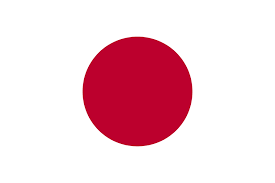doloremque laudan tium, totam ersps uns iste natus
- 01-5319944 || +977-9851204068
- [email protected]

Studying in Japan allows student to learn Japanese language all the way throughout your degree program, while also earning a degree in another subject. Many students with an interest in Japan feel they have to choose between a degree in Japanese and another subject. Japan is one of the most technologically advanced societies on Earth; as a result, it has the world's third largest economy by GDP (after the U.S. and China). Japanese exports include automobiles, consumer and office electronics, steel, and transportation equipment. Imports include food, oil, lumber, and metal ores.
Studying in Japan allows student to learn Japanese language all the way throughout your degree program, while also earning a degree in another subject. Many students with an interest in Japan feel they have to choose between a degree in Japanese and another subject. Japan is one of the most technologically advanced societies on Earth; as a result, it has the world's third largest economy by GDP (after the U.S. and China). Japanese exports include automobiles, consumer and office electronics, steel, and transportation equipment. Imports include food, oil, lumber, and metal ores.
There are many good reasons to study in Japan. Some students are attracted by Japan's high educational standards, while for others the attraction is Japan's rich cultural heritage. Nearly 5 million students study abroad annually, with that number projected to continue increasing. With over 150,000 international students, Japan is one of the most popular destinations for international students. It is one of the safest countries in the world. It also has one of the world's most advanced healthcare systems, reflected in this high life expectancy. Tuition fees are comparatively cheap in Japan. For this wishing to remain in Japan, there is a strong job market for highly qualified graduates.
Student visa holders are not allowed to engage in any paid activities, unless they get the permission of the school and the immigration office. Even then, students may work only a set maximum number of hours per week.
Studying in Japan allows student to learn Japanese language all the way throughout your degree program, while also earning a degree in another subject. Many students with an interest in Japan feel they have to choose between a degree in Japanese and another subject. Japan is one of the most technologically advanced societies on Earth; as a result, it has the world's third largest economy by GDP (after the U.S. and China). Japanese exports include automobiles, consumer and office electronics, steel, and transportation equipment. Imports include food, oil, lumber, and metal ores.
There are many good reasons to study in Japan. Some students are attracted by Japan's high educational standards, while for others the attraction is Japan's rich cultural heritage. Nearly 5 million students study abroad annually, with that number projected to continue increasing. With over 150,000 international students, Japan is one of the most popular destinations for international students. Japan is one of the safest countries in the world. Japan also has one of the world's most advanced healthcare systems, reflected in this high life expectancy. Tuition fees are comparatively cheap in Japan. For this wishing to remain in Japan, there is a strong job market for highly qualified graduates.
Student visa holders are not allowed to engage in any paid activities, unless they get the permission of the school and the immigration office. Even then, students may work only a set maximum number of hours per week.
Nepalese students with Japanese Student Visa:
Student Visa is a visa accepted by Japanese language schools, Japanese universities and vocational schools. The status of residence will be “Student”. The period of stay of a Student Visa is issued for 6 months up to a maximum of 2 years from the date of entry and depending on the studying period. Part time jobs of four hours per day are possible if you have permission to do activities outside the one stated in your visa status. However, there are restrictions on the types of work.
Students are first required to enroll under Japanese Language Course for at least one to two years. Only after completing the language course successfully, students will be allowed to take admissions in the Japanese Colleges and Universities as per their desired courses. For the university admission, students need to give the entrance examination. All in all, students should be very clear that they first have to go through the language course.
So, the initial step begins with choosing the Japanese Language Institution.
Learning Japanese Language is not only fruitful for getting admission in the universities in Japan but also helpful for understanding and evaluating the innovators of Asian Culture. Also Japan is the best country in technology and business advancement, so knowing Japanese Language Opens door to the world of opportunities.
Prerequisite for visa:
Japanese Language Institutions:
1.Offered by Private Universities:
They offer regular courses under university syllabus as per the School Education Law.
The preparatory Japanese language courses for foreign students offered by private universities. These classes are for the international students who are willing to admit in junior colleges or undergraduate or postgraduate programs at universities, either as students or researchers.
They teach about the Japanese Language, Society and Culture and other general information.
One positive aspect for students who join this course may get advantages in the admission process in the same university (benefits may vary with the Universities)
2. Offered by Language Institutions in Japan:
They are categorized as the specialized training schools, vocational colleges, educational institutions and more. Students willing to take the course from the language institutions should first chose the institutions that are accredited by the Ministry of Justice. For this one can have a quick peek into the list from the official website of Ministry of Justice.






